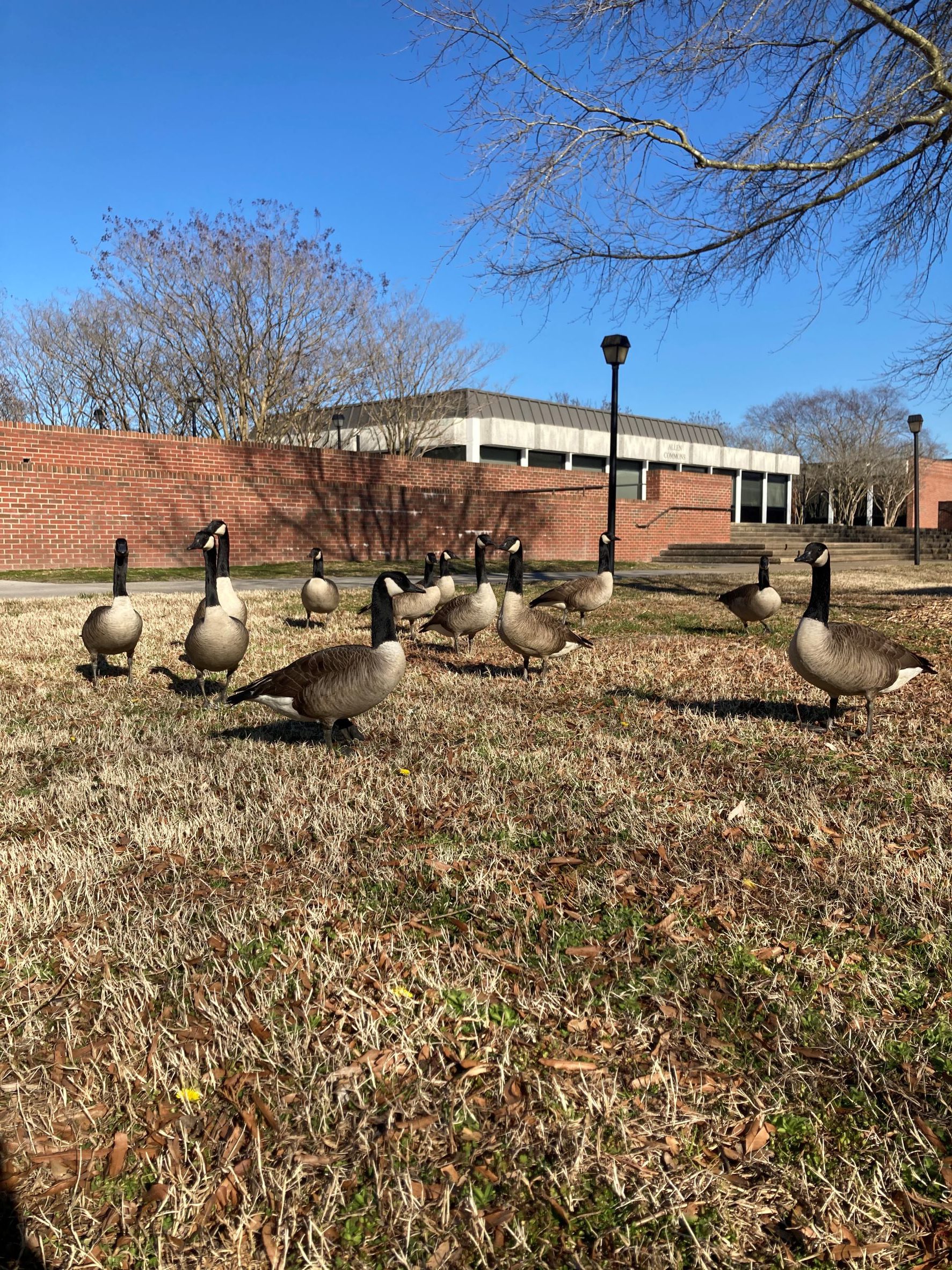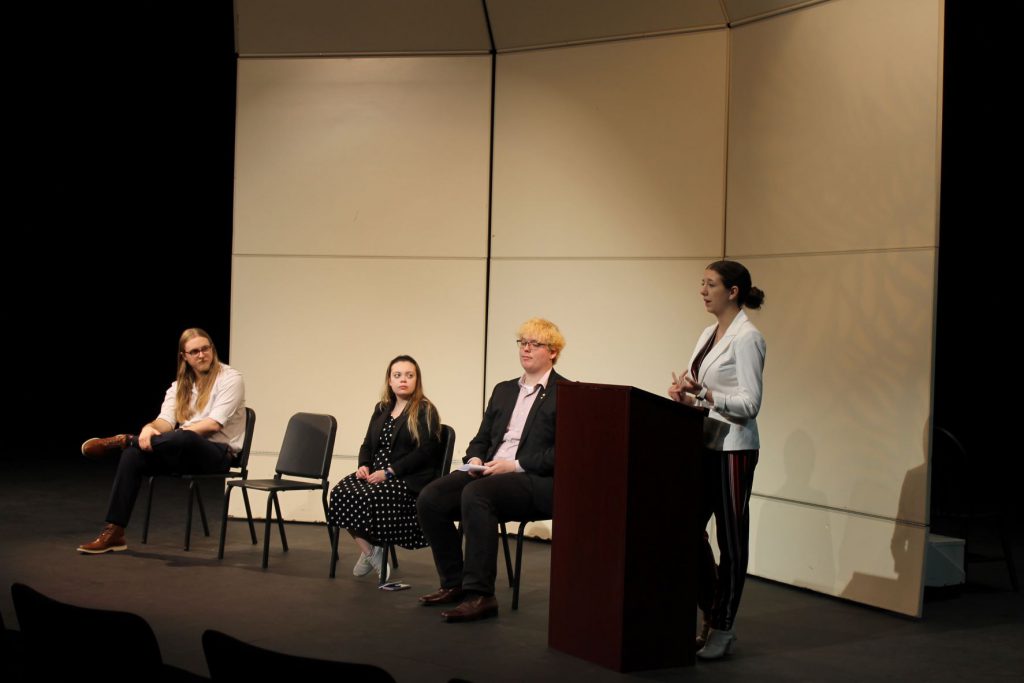Virginia Wesleyan is home to residential geese, meaning they stay in one location all year.
“VWU offers prime real estate for residential geese,” Jason Seward, associate vice president for campus life and operational management, said.
Students, staff and visitors walk all around campus accompanied by other creatures. It is very well known that the campus community is also visited by huge numbers of Canada geese. Over the seasons the goose population on campus seems to remain the same, as if they don’t plan on leaving anytime soon.
“The large population of geese that call VWU home, is having a noticeable, and in some cases negative, impact on and around campus,” Seward said. “The geese devastate green space. They eat grasses and other plant life, damaging the areas they frequent. I’m sure you have noticed increased droppings on sidewalks, playing fields, patios, field space, and parking lots, which have become an everyday encounter. The greatest concern and most dangerous impact is felt by our neighbors at Norfolk International Airport, given the danger geese pose to aircraft.”
Virginia Wesleyan has tried different ideas to try to remove the geese. “The University has utilized a number of deterrents like herding dogs, non-lethal sprays that make the grass undesirable for consumption, RC units and electronic recorders to prevent geese from landing or staying here on campus,” Seward said.
When asked why the geese are here and what the subsequent complications are, Seward said that there are two categories of Canada geese: residential and migratory.
“Migratory birds, of course, are birds that leave their spring and summer homes when winter conditions become too extreme for their survival,” Seward said.
But as many students know, weather conditions in Coastal Virginia are mostly not too hot and not too cold that make it perfect for not just the campus community, but for the geese as well.
Moreover, Seward said “Water and food sources become very scarce during cold winters, so the birds migrate south to find sanctuary. Once warmer weather returns, the geese then return to their home grounds for nesting season and the summer.”
Looking to the future, Seward discussed the university’s plan for geese removal. “The University is exploring other deterrent techniques and products to help with Canadian goose control on campus,” Seward said.
Franklin Washington, a sophomore at VWU said, “I feel that it’s good to have the geese on campus but they can be too overwhelming at times.”
He also agreed with the statement from Seward about the geese’s behavior and how they act here at campus. Washington also said that the “University should try introducing the geese to new areas so they could migrate away from the campus.”
When it comes to what the school should do with the geese population, sophomore Nicholas D’Antonio said, “I agree with Jason’s opinion of the geese, especially that they could pose a threat to planes that are taking off and landing in the area.”
“The overall impact of the geese on campus would be negative in my opinion,” D’Antonio said, “due to them blocking traffic, relieving themselves on the sidewalk, and making a large amount of noise when students are trying to sleep. With that said, I do not know if the campus has tried removing them in the past, although it would have been very difficult to find a new home for such a large population.”
Although the future for the geese is unknown at this time, for now what we do know is that the geese wish to stay despite frequent efforts by the school administration.
By Joseph Cooper
jmcooper1@vwu.edu

